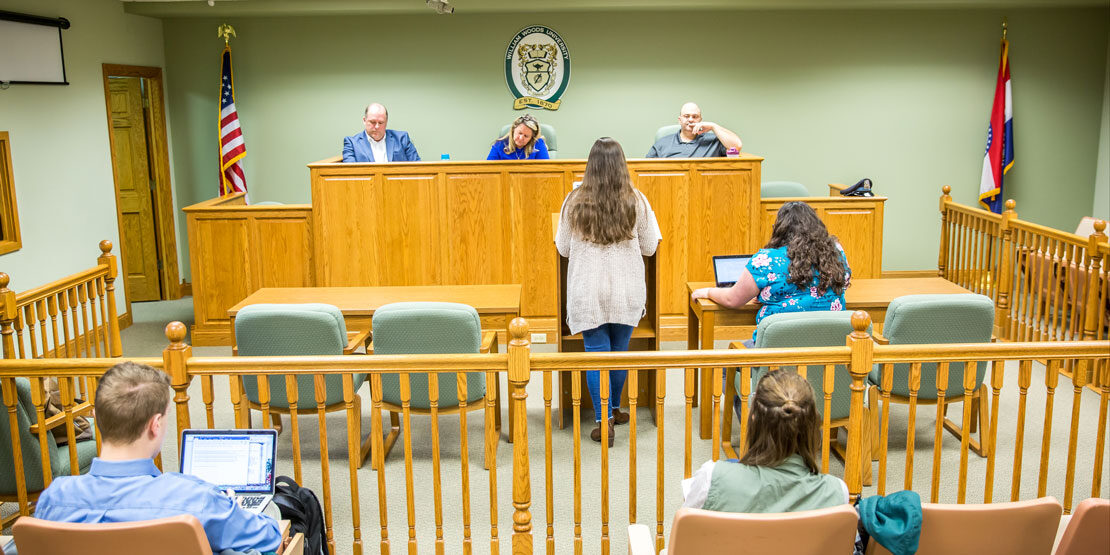Annual Court docket is another example of valuable experiences available to William Woods students interested in careers in the law
The Missouri Court of Appeals, Western District will once again convene court on the William Woods University (WWU) campus this week, the 28th time the court will hear cases at The Woods. The three-judge panel will hear oral arguments in four cases in the university’s unique model courtroom, located in the Burton Business and Economics Building, beginning at 9:00 a.m. on Wednesday, April 6.
The cases are appeals from previously held trials and other proceedings in area circuit courts. Presiding Judge Karen King Mitchell, Judge Edward Ardini, Jr., and Judge Thomas Chapman will hear oral arguments, then take time to discuss the court system, explain the proceedings, and take questions from the audience.
Though based in Kansas City, the Court has jurisdiction over appeals from trial courts in 45 Missouri counties, including Callaway County. Over the past 20-plus years, the Court has held sessions in many of those counties in its jurisdiction, which is why it has regularly held dockets on the William Woods campus. This will be the first time the Court will hold a docket since 2019, due to disruptions from COVID-19.
“This annual visit from the Missouri Court of Appeals, Western District is another illustration of the significant benefits that students interested in a career in law or criminal justice receive when they choose to attend William Woods University,” said Cynthia Kramer, professor of Legal Studies at WWU. “Our students get the opportunity to observe a part of the judicial system they rarely get to see in action. It is a great learning experience for them, as the judges take the time to discuss the court system, explain the proceedings, and take questions from the audience.” Other benefits that William Woods students enjoy include the use of the Bernard Wietzman Model Courtroom. WWU is the only university in the state of Missouri without a law school that has a fully functional model courtroom, which was constructed to provide students in the university’s political science, legal and paralegal studies, and criminal justice majors, with practical courtroom experience.

